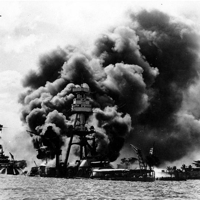As the father of 2-year-old twin daughters, I often find myself thinking about how international politics and foreign policy will play out across their lives. Of course, parents aren't the only "institutions" that wonder about the possibility of forecasting and shaping the future. Governments, international organizations and companies make huge investments of both lives and money based on expectations with time horizons of 10, 20 and even 50 years. Nimitz-class aircraft carriers have been in service for more than 30 years and may serve for another 40. The United States is currently wrestling, in a very public manner, with the long-term implications of its tax and entitlement policies. Expectations of Chinese and Indian economic growth, not to mention climate change and "peak oil," help structure how every nation thinks about its future.
But my role as a parent has led me to a thought experiment: How might international affairs have affected my daughters' lives had they been born in 1909, instead of in 2009? What key events would have shaped their outlooks and expectations? More importantly, how can using the vantage point of 1909 to contextualize contemporary events help us think about the century ahead?
Had my daughters, Miriam and Elisha, been born in the United States in 1909, their life expectancy would have been somewhere around 54 years, although that would have risen considerably once they survived infancy. They would have entered a world in which war between great powers was relatively rare. The birth pangs of the German Empire had involved the military defeat of Austria and France, but both conflicts remained relatively discrete. Similarly, Japan had recently emerged on the international stage by militarily defeating China and Russia, but neither of those two conflicts produced a wider war.

